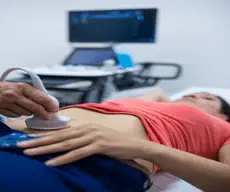We understand the journey to parenthood through IVF is filled with anticipation and questions, especially around key milestones. The period of 12 days after embryo transfer is crucial. It marks a time when early signs of pregnancy can begin.
At that time, hCG levels become detectable. This guide provides a comprehensive look at what to expect at this critical juncture, backed by the expertise of the Nisha IVF, an IVF Centre in Ahmedabad.
Ready to embark on your journey to parenthood? Schedule an appointment and get expert guidance.
Understand why the 12-day mark is a pivotal milestone in your IVF journey by learning in-depth about embryo transfer post-12 days.
The Significance of the 12-Day Mark
12 days after an embryo transfer is a key time in the IVF journey. This is when the embryo starts to release hCG(human chorionic gonadotropin), the hormone that pregnancy tests look for to confirm a pregnancy has started. It’s an important sign that the embryo has attached well to the womb, which is a big step toward a successful pregnancy.
Around this time, some people might notice symptoms like:
- Light cramping
- Spotting
- Sore Breasts
which are similar to early pregnancy signs. But since these symptoms can vary a lot from person to person and don’t guarantee pregnancy, it’s important to wait for a proper test to be sure.
Want to uncover the complexities of hCG Levels?
Read further and decode the role of hCG levels as the early signs of a potential pregnancy.
Understanding hCG Levels After IVF Embryo Transfer
The hormone hCG plays a crucial role post embryo transfer. Day 12 post embryo transfer, hCG levels provide a valuable early indicator of embryo implantation and the establishment of pregnancy. These levels can vary greatly among individuals but seeing an increase over time is a positive sign of a progressing pregnancy.
More curious about your hCG levels 12 days after embryo transfer? Don’t navigate this critical time alone. Contact the experts now!
What Can Affect hCG Levels?
The are various factors affecting hCG Levels such as:
- Timing of Embryo Transfer: The specific day on which the embryo transfer occurred can impact hCG levels, especially with the 12-day mark.
- Number of Embryos Transferred: Transferring multiple embryos may affect the amount of hCG detected.
- Individual Differences: Everyone’s body reacts differently, meaning physiological variations can influence hCG levels.
- Trend Over Time: A single hCG reading isn’t as telling as watching how these levels change over time. This shows the importance of trends over one-time measures.
How to effectively monitor hCG levels? Here’s what you need to understand for the best insight into your pregnancy progress.
Monitoring hCG Levels: What You Need to Know
Monitoring hCG levels is vital for assessing the viability of the pregnancy. At Nisha IVF, we emphasize the importance of sequential hCG testing to our patients, as it provides more comprehensive insights than a single measurement. A rising trend is reassuring, while stagnant or decreasing levels warrant further evaluation.
Determining the optimal time for hCG testing is our next focus, ensuring accuracy in your journey. Schedule a consultation with the IVF Specialists.
When to Test for hCG After Embryo Transfer
The optimal time for the first hCG test is 12 days after embryo transfer. Testing too early can result in false negatives, as hCG levels may not yet be detectable. At Nisha IVF, we guide our patients on the best timing for testing to ensure accuracy and clarity in the results.

Conclusion
Reaching the 12-day mark after embryo transfer is a significant milestone in the IVF process, filled with anticipation and hope. Understanding the role of hCG levels, recognizing potential symptoms, and knowing when to test are all key components of navigating this period. At Nisha IVF, a dedicated IVF Centre in Ahmedabad, we’re dedicated to providing our patients with the support and guidance they need during these crucial early stages of their journey to parenthood.
Every journey has its hurdles, but with the right information, you can navigate them successfully. Click here to talk more about it with the expert.
FAQs
- What Should My hCG Level Be 12 Days After Embryo Transfer?
Each individual’s hCG levels can vary significantly, but a positive trend over time is a good indicator of a viable pregnancy.
- Can hCG Levels Predict Pregnancy Outcome?
While initial and follow-up hCG levels can provide valuable insights into the early viability of a pregnancy, they are not definitive predictors of the overall pregnancy outcome. Continuous monitoring and additional tests are often necessary.
- How Often Should hCG Levels Be Monitored?
After the initial test embryo transfer after 12 days, hCG levels are typically monitored. Every 48-72 hours to assess the doubling time, which can indicate the health and progression of the pregnancy.
- What If My hCG Levels Are Not Doubling?
Non-doubling hCG levels may indicate a potential issue with the pregnancy, such as an ectopic pregnancy or miscarriage.


